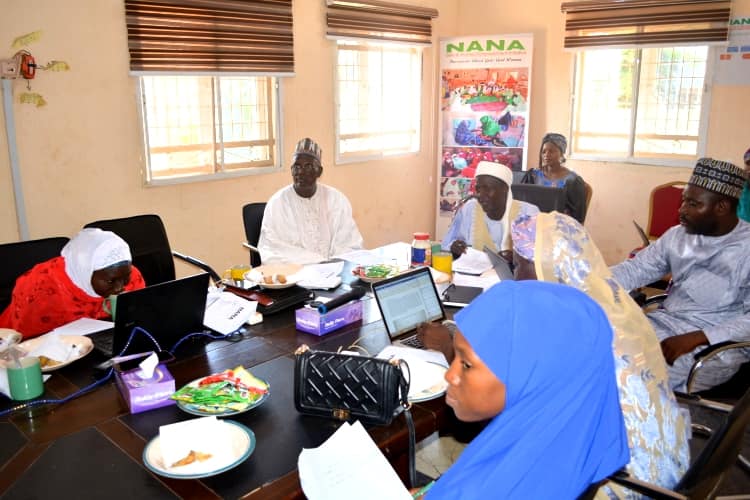Background
Nana is a registered NGO working in Northern Nigeria to provide innovative, scalable and cost-effective interventions that empower women and girls and provide them with opportunities to challenge the existing gender inequality. Nana as an organization is passionate about girls and women and cherishes integrity, equity and justice. This passion is reflected in the work we do and how we do them. To provide opportunity to girls and women and to challenge gender inequality, Nana adopts two approaches: first, our work addresses the practical gender needs of girls and women by providing them with opportunities to access and excel in school, pursue their chosen career, including politics? as well as other forms of economic empowerment, including facilitating access to finances. The second approach is working to address the strategic gender needs of women and girls on the way we deliver the practical needs. We do not only improve women’s and girl’s access to education and career for example, but more importantly, we them to challenge the norms and values that support and perpetuate such discriminations through building the agency of the girls and engaging with religious, traditional and political leaders. We recognize the fact that every parent wants their daughters to prosper and ‘become somebody’ useful to the family and the ‘al’umma’ (community).
The biggest obstacles are lack of financial (cost of schooling/training and poverty), social (ability to withstand social pressure) and political capital (voice and accountability). Similarly, we recognize and appreciate the fact that majority of ordinary women and girls are engaged on one form of economic activities or the other in order to contribute to family income. The value of women’s economic engagement is entrenched in Northern Nigeria, that almost every native woman and girls are economically engaged. The 2013 National Demographic Health Survey reported high level of women economic independence in North West zones compared to the zones in the South. The Survey reported that 88% of women from the North west have sole control over their earnings than 41% in the South east. So, Nana approach is not just providing opportunities, but also building the agencies of women and girls to negotiate against all forms of discriminations. The local reality that virtually all rural Hausa families practice a system of seclusion, in which married women are expected to conduct most activities within their compound and other private spaces influences Nana’s approach to empowerment. Majority of rural Hausa women need the permission of their husbands to go outside the home to visit a relative or a health facility even in the case of an obstetric emergency. With the limitations of seclusion, Northern women do engage in a variety of economic activities in their homes such as agricultural processing, embroidering, sewing, and preparing products for sale. Northern women’s dependent on the labour of girls is unavoidable because of seclusion. Women are dependents on girls to buy raw materials needed for their economic activities, to hawk for them and to do other domestic chores such as bringing water, and minding younger siblings—so keeping a daughter in school presents mothers with significant opportunity costs
Vision
Mission
A world free from gender discrimination and oppressive power relations that affect women and people living in poverty.
We collaborate with key actors to provide opportunities that enhance the lives of women, girls and people living in poverty, towards achieving a just, fair and inclusive society.
Values
We collaborate with key actors to provide opportunities that enhance the lives of women, girls and people living in poverty, towards achieving a just, fair and inclusive society.
Our History
Nana started as a community-based initiative in Yauri Emirate in 2008 to improve students’ academic performance in secondary schools by supporting teachers to provide extra lessons to students interested in pursuing higher education. Due to high rate of unemployment among the youth in the region, Nana developed interest in giving financial support to youth and women to expand on their existing businesses. After two years’ experience, Nana decided to collaborate with an existing registered Microfinance Bank to manage the disbursement and repayment of loans in line with the microfinance guidelines and rules. Thereafter the focus expanded to support youth and women to start up a business or to expand on an existing business as socio-economic empowerment scheme. The organization was registered with the Cooperate affairs in 2015 and expanded its operation to Birnin-Kebbi and Sokoto states. Nana believes in innovative, scalable and cost-effective interventions that empower women and girls and provide them with opportunities to challenge the existing gender inequality. Nana as an organization is passionate about girls and women and cherishes integrity, equity and justice. The strength of NANA team is deep local knowledge and good understanding of the gender issues that facilitate and hinder women’s path to empowerment as well as engagement with government, community, religious and traditional institutions and leadership.




